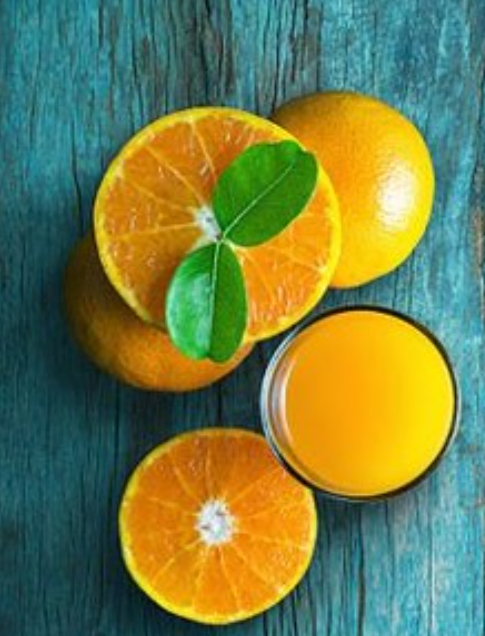
Rumours:
The study by the University of Reading in the UK showed that older people who drank 500ml of orange juice a day had a rapid effect on improving their brain function. Researchers asked 37 volunteers aged 60 to 81, 24 women and 13 men, to drink 500ml of orange juice every day for eight weeks. At the end of the experiment, the volunteers' memory, reaction time and verbal skills had improved by 8% overall.
Truth:
The claim here comes from a study published in the American Journal of Clinical Nutrition. While the study is true, it falls far short of providing sufficient evidence for "orange juice for the brain".
What did the researchers do?
This was a randomised crossover controlled trial conducted by researchers at the University of Reading to examine the effects of orange juice on cognition in healthy older people. The researchers hypothesised that the flavonoids (flavanones) contained in pure orange juice might play a beneficial role in this, while orange juice drinks containing fewer flavanones would not have as much benefit. Flavonoids are considered to have health benefits (although there is still much controversy in this area too), and some studies have found that higher flavonoid intake may have a positive effect on cognitive function.
A total of 37 healthy elderly subjects, with an average age of 67 years, were included in this study. This was a crossover controlled trial, meaning that each subject received two successive sets of interventions with different conditions, which were then compared to themselves. Each subject will receive the following two interventions in a randomised order.
500 ml of 100% orange juice (containing 305 mg of flavanones) per day for 8 weeks
500 ml of orange juice drink (containing 37 mg of flavanones) per day for 8 weeks
In between, they will allow 4 weeks for the effects of the previous intervention to wear off. During the experiment, the investigators will not inform the subjects exactly which drink they are drinking. At the beginning and end of each 8-week period, the researchers recorded basic health information such as weight and blood pressure, and administered cognitive and memory tests to the subjects.
Overall, after 8 weeks of drinking orange juice or orange drink, the subjects' cognitive test results showed minimal differences compared to baseline, with no statistically significant differences between them. The researchers used a variety of different cognitive tests on the subjects and there was little difference in the data between the orange juice and orange drink tests. Of the many test results, only one of the situational memory tests showed a statistically significant difference between the two groups. And even for this significantly different data, they were still not significantly different from the respective baseline data.
What does the study say?
The researchers themselves wrote in their paper that "drinking 100% orange juice daily has beneficial effects on cognitive function in healthy older adults", yet their study has many limitations that do not provide sufficient evidence to support this assertion. The study was small in size, only 37 people were included, and these subjects may not have been representative. It is also worth noting that changes in cognitive scores were very weak compared to baseline, both after drinking orange juice and orange drinks. Although the researchers attempted to conduct a double-blind test, the difference in taste between orange juice and orange drink made this blindness difficult to establish.
In addition, the only data set that was "significantly different" was not very informative. When comparing data across multiple indicators, the more indicators selected, the greater the likelihood that at least one of the total data will be significantly different, and that this difference may be due to a random effect.
Even if the flavonoids in orange juice are really beneficial to health, eating oranges directly would be a more recommended way of intake than drinking juice. There is a loss of fibre content in the juice compared to the whole fruit, and because of its great taste and low satiety, it also tends to make people drink too much, increasing the risk of gaining weight and tooth decay.
Conclusion.
This study is not enough to suggest that orange juice is beneficial for cognitive function, and it should not be recommended at this time on the grounds that it is "brain healthy". Maintaining a healthy brain relies more on the overall effect of a healthy lifestyle than on a single food.